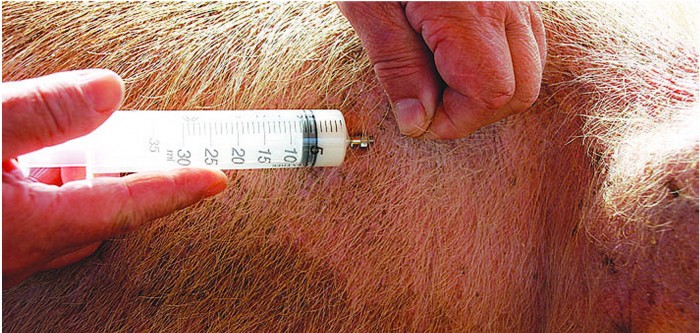A new Government five-year plan to combat antimicrobial resistance (AMR) in humans and animals has been welcomed by the animal health sector.
The second national action plan will commit the UK to reducing its use of antimicrobials – such as antibiotics, antifungals and antivirals – in humans and animals, strengthen surveillance of drug-resistant infections before they emerge and incentivise industry to develop the next generation of treatments.
The new plan has 9 strategic outcomes organised under 4 themes:
- Reducing the need for, and unintentional exposure to, antimicrobials, including activity to prevent infections arising in the first place
- Optimising the use of antimicrobials through ensuring antimicrobials are only used when needed in humans, animals and the environment.
- Investing in innovation, supply and access – by supporting and incentivising the development of new vaccines, diagnostics and therapeutics (including alternatives to antimicrobials).
- Being a good global partner, maintaining the UK’s role as an international leader on AMR.
The Government pledges to work alongside the veterinary profession to ensure that they have the necessary data, knowledge and skills. The aim will be to ensure vets are empowered to advise on good husbandry and animal management strategies for disease prevention, prescribe antimicrobials responsibly, and, where appropriate, recommend evidence-based alternative treatments in place of antimicrobials.
The Government also promises to support the veterinary profession, the livestock and aquaculture industry, retailers and/or processors and animal keepers to ensure animal health and welfare is protected and that animal keepers have the necessary knowledge, skills and data to implement measures to prevent and control disease and infections. This will reduce the need to treat animals with antimicrobials and, where antimicrobials are necessary, adhere to responsible use and disposal practices.
UK Chief Veterinary Officer, Christine Middlemiss, said: “The UK has made fantastic progress in the past 10 years to reduce AMR in animals, working between government, farming industry, vets and animal keepers to reduce the use of antibiotics in food-producing animals by more than half.
“The new national action plan will build upon these achievements, and I urge vets and animal keepers to continue to support the UK’s 20-year vision to contain and control AMR.”
Responsible use
Cat McLaughlin, chair of The Responsible use of Medicines in Agriculture (RUMA) Alliance, said RUMA was ‘very pleased’ to see the launch of the plan today, which she said further supports and drives UK efforts to tackle AMR from a One Health perspective.
“In the UK, the responsible use of medicines across UK farming is already part of everyday language, with farmers and vets working collaboratively to embed best practice for responsible use and reductions across all sectors,” she said.
RUMA’s latest RUMA Targets Task Force 2 (TTF2) progress report was released in November 2023 highlights the ongoing efforts and achievements underway.
The achieved an overall 74% reduction in antibiotic use between 2015 and 2-22, taking the sector below the current target of a 30% reduction in total use by 2024 from the 2020 baseline.
“By only using antibiotics when truly needed, UK agriculture continues to play its role in tackling AMR and protecting the efficacy of these important medicines long into the future,” Ms McLaughlin added.
British Veterinary Association president Dr. Anna Judson said: “The Government’s new five-year plan shows a continued commitment to containing and controlling antimicrobial resistance in animals, humans and the environment through a One Health approach.
“The UK has made substantial progress on AMR particularly in the agricultural sector, which has recorded a 59% reduction in antimicrobial use since 2014. We’re pleased to see the new action plan recognise this achievement in antimicrobial stewardship through cross-sector, collaborative efforts by vets, farmers and government.
“Vets play a vital role in championing responsible antimicrobial use. BVA will continue working with its specialist divisions and all key stakeholders to build on the animal health actions within the plan, to help preserve these essential medicines for both humans as well as animals in the future.”
Dawn Howard, chief executive of NOAH (the National Office of Animal Health) also welcomes the announcement.
“NOAH is committed to working with the government and all stakeholders to tackle the serious threat of AMR; we are particularly pleased to see the plan’s focus on areas of key interest to animal health,” she said.
“NOAH is a leading advocate for the responsible use of antibiotics in animals. Our Animal Medicines Best Practice (AMBP) training programme, produced in partnership with Lantra, provides a valuable online course for farmers and vets and the latest information on antibiotic stewardship.
“The AMBP programme helps to ensure that farmers work with their vets to optimise farm biosecurity, ensuring antibiotics are used only when necessary.
She said NOAH members are at the forefront of developing new preventative products such as vaccines. Vaccines help to protect animals from disease in the first place, reducing the need for antibiotics.




